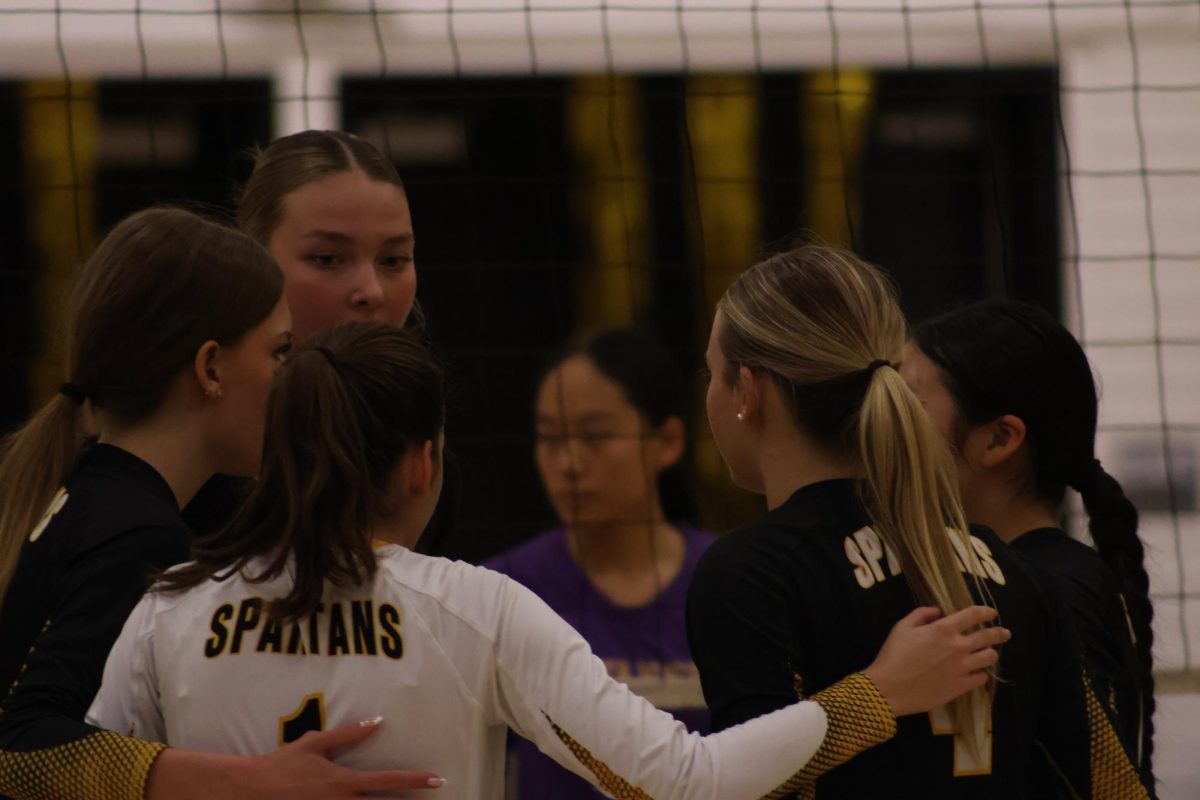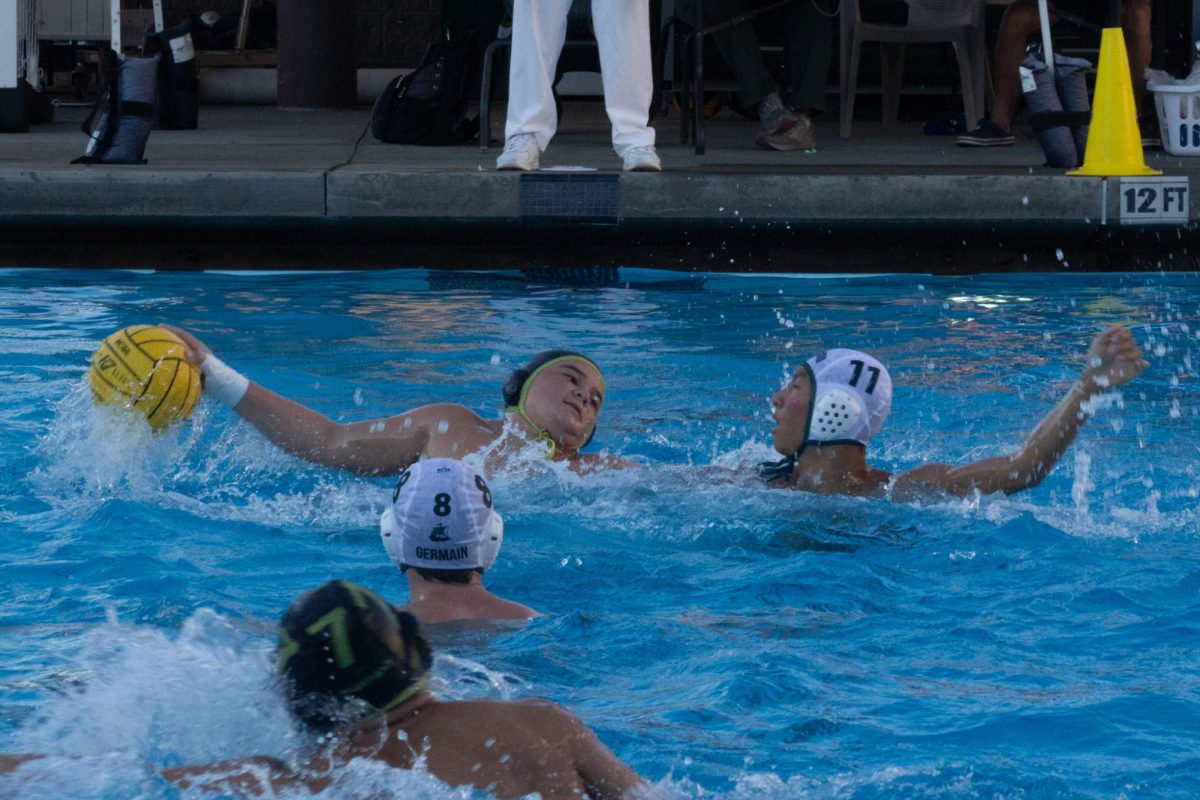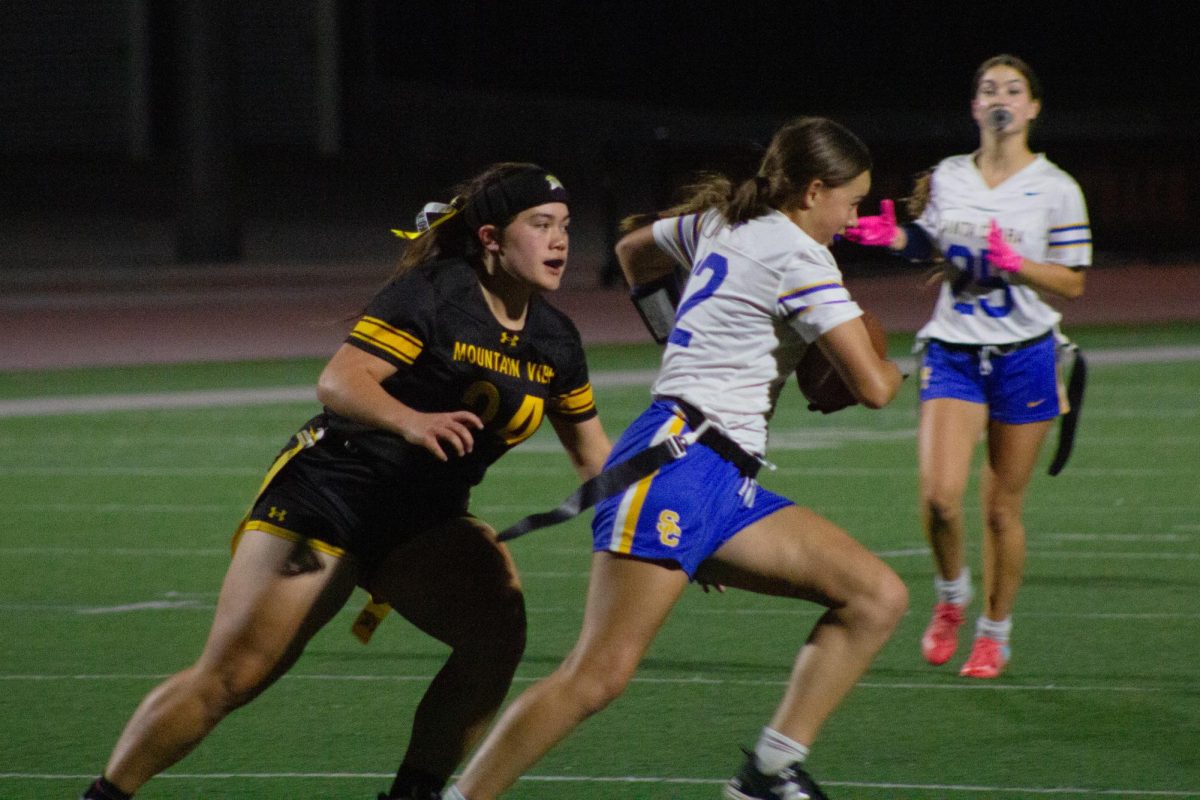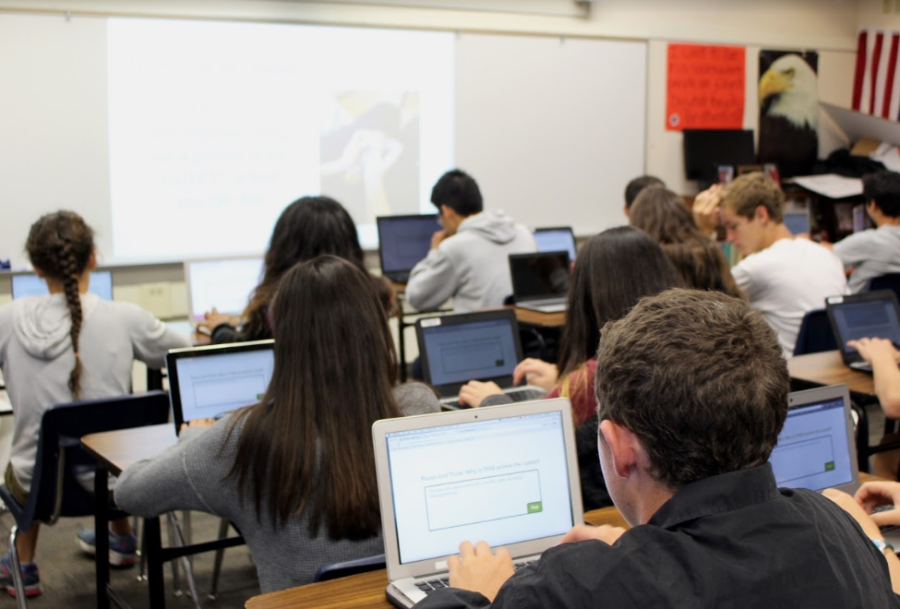On Jan. 10, the MVHS student body participated in a school-wide survey that gathered information about students’ experiences with tutorial period. The first tab corresponds to results from the tutorial survey, and the second is a collection of responses from teachers who weighed in on tutorial period.
[accordions]
[accordion title=”Student Perspectives” load=”show”]The Oracle received part of the results of the tutorial survey taken by students on Jan. 10 from administration. Here are the results. [/accordion]
[accordion title=”Teacher Perspectives” load=”hide”]This year MVHS introduced the tutorial period. Oracle asked teachers of various departments to review tutorial period and share their own experiences. Ratings of the period were given by teachers on a scale of 1 to 5.
*interviews were conducted through email
*Sarah Good ⬤ ⬤ ⬤
“Many students come in to work with friends who are in the same class. Sometimes, students from different periods work together, which is a nice opportunity. Other students are not doing school related things—looking on the computer, sleeping or reading for pleasure (also not a bad thing).”
“I haven’t requested that students attend, and I haven’t used to as a time to make up tests or quizzes; it would be hard in my room with so many other students working on different things.”
*Lori Nock ⬤ ⬤ ⬤ ◖
“I am open to anything that benefits students. Any changes in any situation need years before the true impact can be felt. 5 years from now we might actually have a realistic grasp on tutorial period. It is too soon to tell right now if it makes a difference at all.”
Phil Wiechec ⬤ ⬤ ⬤ ⬤
“I only let my students in that make an appointment with me. If a student doesn’t have an appointment with me, I make them leave.”
“I don’t think that one time a week would be enough. I think we need at least two times a week and I think it should be at the end of the day…so that those students that don’t need help can go home. The students that really do need help are going to be staying here.”
“I have four different classes that I teach, and even that is a struggle sometimes…Today I had so many in here [there was] no way I could get to them all.”
*Brook Mangin ⬤ ⬤ ⬤ ⬤
“I think it has created breathing space for students to catch up. Obviously, some students are taking more advantage academically than others. With the responsibility for making decisions about the best use of their time being placed on the students, there are students who are better at recognizing their needs than others, but this is true of our time in the classroom as well.”
“I originally was on a team of teachers exploring the Los Altos model several years ago. At the time, I believed this model wouldn’t meet the needs of all our students and thought a different model would be better. In the subsequent years, our school’s revision policy changed dramatically, resulting in more and more students needing to find time to revise assignments. Given that need, I think the current model goes a long way in providing extra time for revisions.”
“It’s always nice to see my students, and I love it when students recognize the need to seek feedback in order to improve.”
*Katie Thornburg ⬤ ⬤ ⬤ ⬤
“Group work can bring together students from different sections of a course. It would be better to have the tutorial period on Monday. For those of us who like to give next day service on returning tests, the length of the periods on Tuesday eliminate Tuesday as a test day.”
“There should be a way to separate test-takers and re-takers from the groups studying together, as the noise level is not conducive to the thinking students need to do on tests, nor is lowered volume conducive to group interchanges.”
“When it was first proposed in Leadership, I asked that there be a specific plan drawn up, which happened. I was in favor of it then, and now.”
*Tami Kittle ⬤ ⬤ ⬤ ⬤
”[I originally] thought it would be unfair to English/Math/History/Science teachers as they have the most students who need assistance. Physical Education does not. However when we were able to allow students to go wherever, and the purpose was for less stress, getting answers, and just relax, it made it more useful for all.”
“[Tutorial Period is] great other than the flex ap sometimes not allowing us to enter the masses that want to sign up . We often have 40-70 students sign in.”
“HOLD STUDENTS ACCOUNTABLE WHO DON’T SHOW. Students may go to a class, somewhere, don’t check in and are not caught.”
Paige Price ⬤ ⬤ ⬤ ⬤ ◖
“It gives students a chance to get a breather during the day. From a teacher’s perspective, it gives me a chance to contact students that I want to single out to help in a particular way. For example, as I was grading assessments, I was listing the people that I wanted to talk to. So in the upcoming weeks, I can ask them to come into tutorial.”
“As I’m the department coordinator, I did send out a survey, and people were very enthusiastic.”
“At the beginning, I wanted there to be a little bit more structure in the way that we ran things. I wanted it to be more than just a homework period—maybe a place where students could come to get a little bit more help on a particular thing they’re working on—but I’ve really been convinced by the fact that students just need a little bit of time to sit down and get a little homework done in the middle of the day.”
*Lydia Zele ⬤ ⬤ ⬤ ⬤ ⬤
“I am fortunate to have Ambassadors from our Ambassador-ELD Connection Club as tutors during this period. With their help, I can assign small groups of students to a tutor to work on their class assignments and in turn, to foster friendships. This Tutorial time is enjoyable and one we all look forward to every week!”
*David Campbell ⬤ ⬤ ⬤ ⬤ ⬤ ⬤ ⬤ ⬤ ⬤ ⬤ *10/5
“The loss of minutes on a Tuesday is negligible. Those ‘stolen’ minutes give me time to meet with students for retakes or extra assistance, freeing up my lunch for at least 1 day a week. I almost feel like we could use more tutorial sessions during the week.”
“I think that teachers and students know how they need to use this time, and the administration has done a great job in giving us the freedom to implement it as we see fit, on a teacher-to-teacher basis. Our district is very lucky in that we have highly motivated students and faculty members that are dedicated to the success of those students. The district knows all of that, and gives us the tools we need to work together successfully. We are in a special district in a special place because not all districts have the same vision we have.”
“Overall, my experience has been incredibly positive. Some days, I am even able to get grading done.”
[/accordion]
[/accordions]

































Interested alum • Feb 10, 2017 at 5:04 am
For alumni, could you provide an explanation of what the tutorial period was/is?